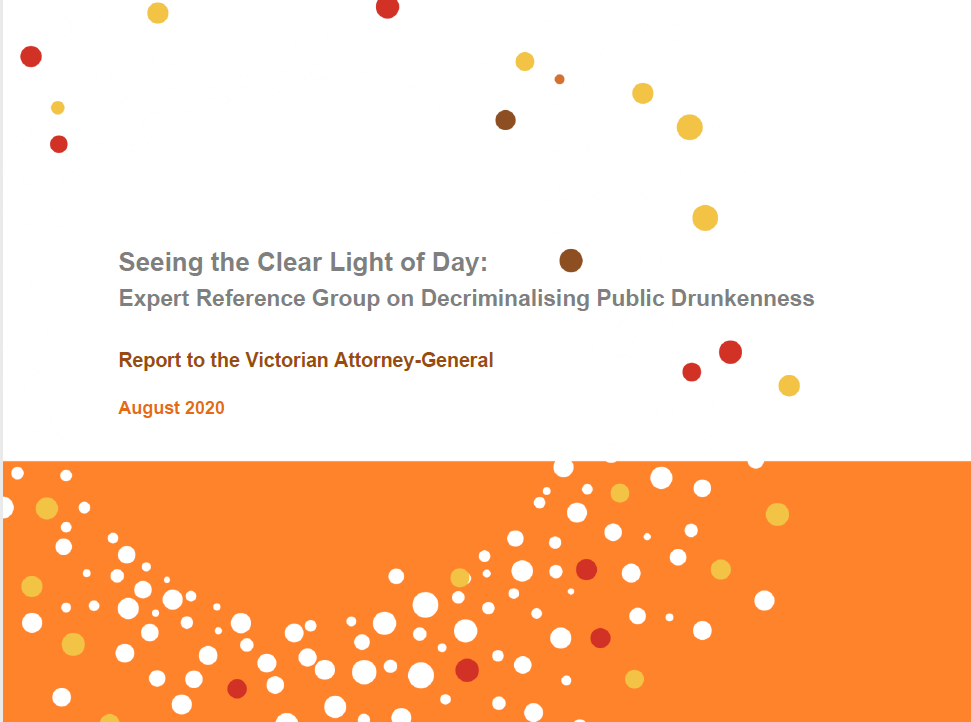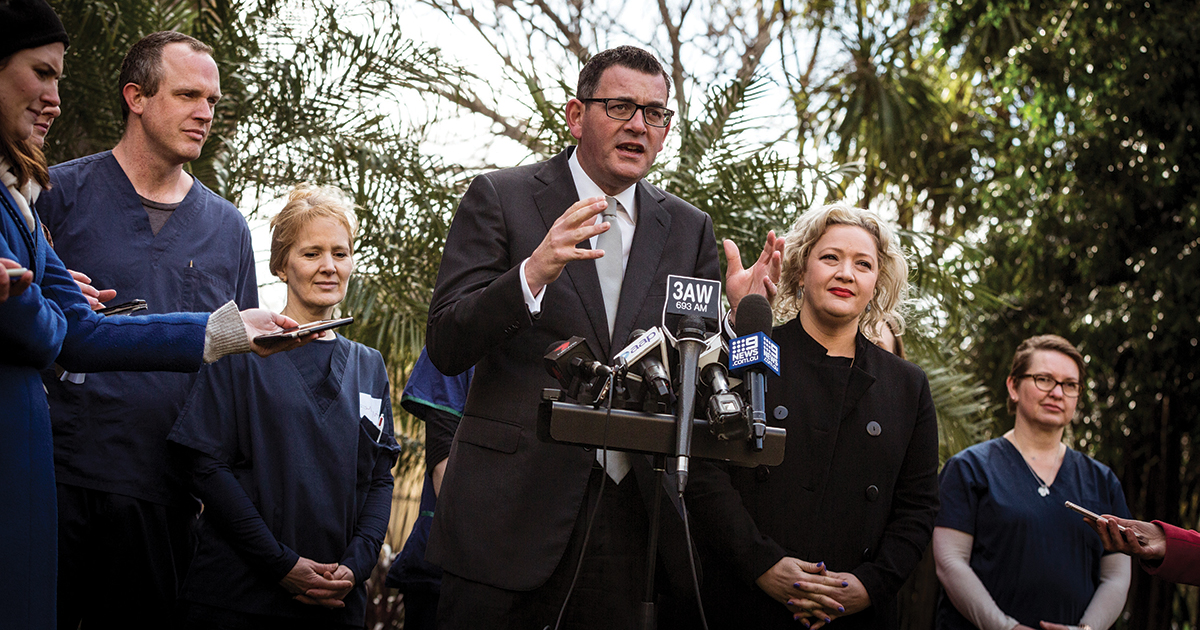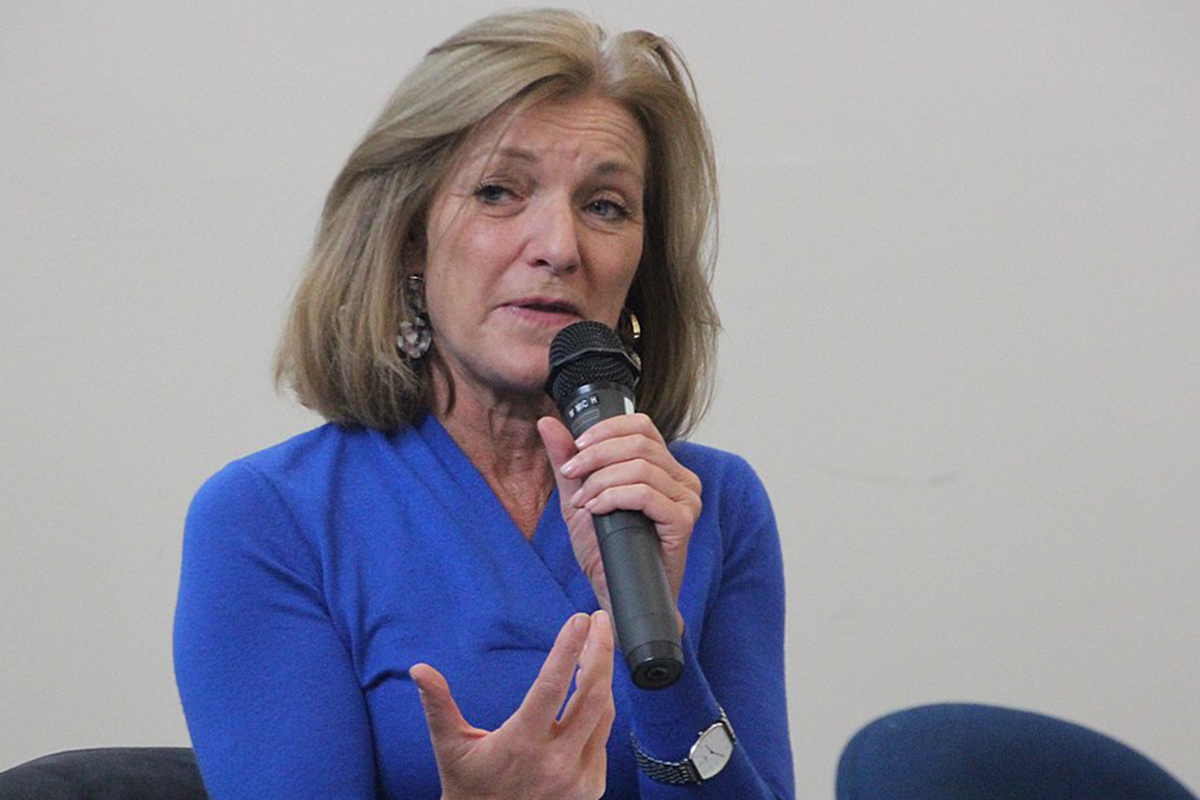
Victoria is close to the decriminalisation of public drunkenness, nearly three decades after the Royal Commission into Aboriginal Deaths in Custody first made the recommendation.
The Andrews Government announced in late November it would review all 86 recommendations of its Expert Reference Group’s Seeing the clear light of day report on public drunkenness. The report reinforces that no one should be in a police cell just because they are intoxicated.
The report found the total number of offences was low with a weekly average of 159 alleged offences. Of these, 84 per cent people enter custody only once. There is a ‘high intensity’ cohort, 6.5 per cent, who enter custody on three or more occasions. This cohort tend to be 40 years or older and are more likely to experience significant health and welfare difficulties.
The government aims to introduce legislation to decriminalise public drunkenness into Victorian Parliament before the end of 2020.
Before full decriminalisation takes effect there will be a two-year implementation period to develop a public health model response to replace the jail cell. This will be critical as ANMF works to ensure our emergency department members’ issues are addressed as they arise. The implementation period will include trial sites before rolling the approach out across the state. The 2020-21 Victorian budget includes $16 million towards this work.
The Seeing the clear light of day report authors said: ‘The current punitive, criminal justice led response to intoxicated people is unsafe, unnecessary and inconsistent with current community standards. A safer, sensible health-based approach is required that ensures the health and safety of all Victorians, particularly our most vulnerable.’
The ANMF (Vic Branch) welcomed the overdue move to overhaul the public drunkenness law and replace the jail cell with a health model.
ANMF (Vic Branch) Secretary Lisa Fitzpatrick said ‘Thirty years is too long to wait, but it is appropriate we wait just a little longer while the measures are put in place to support police and health services so they can provide safe care. Importantly this legislation will benefit many and not just those from indigenous communities.
‘This is a much-welcomed new public health model response and a natural extension of the Andrews Government’s bold drug and alcohol reform agenda.
‘Nurses know that a health model rather than a criminal response is the best way to protect the community and the people who are intoxicated.’
The Andrews Government’s six emergency department ‘crisis hubs’ across the state, to be staffed with skilled emergency department nurses will also create a safer environment to deal with patients presenting with serious addiction issues. The ‘crisis hubs’ will also give police confidence in knowing which hospitals to take affected people for expert care.
The ‘hubs’ will be located at Monash Medical Centre, St Vincent’s Hospital, the Royal Melbourne Hospital, University Hospital in Geelong, Sunshine Hospital and Frankston Hospital.
The government has also been investing in nursing workforce education, including scholarships, to develop and expand the drug and alcohol workforce as new services come online including the rehabilitation services due to open in Geelong, Traralgon and Wangaratta as part of the 2020-21 budget.




